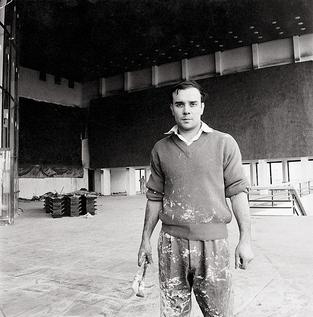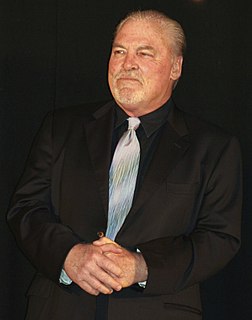A Quote by David Papineau
I think my view is rather more radical than Pete Mandik's. Both of us want to show that colour perception doesn't transcend what can be conceptualized, but I don't think he goes so far as to deny that it doesn't involve different responses to all the discriminable surfaces.
Related Quotes
The orthodox view of colour experience assumes that, when we see a colour difference between two surfaces viewed side-by-side, this is because we have different responses to each of the two surfaces viewed singly. Since we can detect colour differences between something like ten million different surfaces, this implies that we are capable of ten million colour responses to surfaces viewed singly.
I was trying to show colour, but I realized at the private view that the public were prisoners of a preconceived point of view and that, confronted with all these surfaces of different colours, they responded far more to the inter-relationship of the different propositions, they reconstituted the elements of a decorative polychromy.
Facion goes in cycles but nothing has changed. When it's ridiculous it's more ridiculous than ever, and when it's wonderful it becomes more wonderful than ever because now more people think: "I dress the body I have, not I have to change the body to wear the fashion." That's what I admire about the growth of the fashion industry. I also think it's wonderful that there is the opportunity to use different textures and fabrics on different colour skins. I am inspired by that.
I rather incline towards 'conceptualism', in line with my view of colour perception - I don't think that we can represent objects and properties for which we have no concepts, not even in perceptual experience. In this sense I differ from those who defend 'non-conceptual content' like Michael Tye and Chris Peacocke.
I think, oddly, that the world of the amateur is quite self-contained, and it depends on "likes" from other amateurs to perpetuate itself. Of course an awful lot of my colleagues are involved with Instagram - they get likes and dislikes, maybe just likes, I don't know - but I think that it's far less self-contained, the world I work in. It goes off in different directions, and is dependent on responses different from a tick or a like or whatever.
They would make the 'Church ' their great meeting-point, rather than the Atonement of Christ. As far as my experience goes, they have more devoutness and less devotion, more fear and less love, more feeling of duty than of desire, laying more stress on Phil. ii. 12 than ver. 13, and in practice working upon the intellect and imagination rather than aiming at the heart, skirmishing among the outworks rather than assaulting the citadel.
I think real enlightenment is total sanity, a kind of acceptance of what actually is. It does involve a kind of different way of looking at things. As I've done this Zen practice for years and years, I've acquired what I realize is an almost upside down view of life compared to what most people think, which is just what I used to think it was too. It's not really an insane view, at least I hope it's not.
You know, the bully pulpit that the president has is pretty significant. And I think that one of the things this I've learned in my two and a half years in Congress is the American people want to see us transcend party label and transcend D and R and actually get things done, deliver to the American people, and I think if we were focused on that, we would be seeing a lot more folks happy with what's going on in Washington, D.C.
You think OWS is radical? You think 350.org was radical for helping organize mass civil disobedience in D.C. in August against the Keystone Pipeline? We're not radical. Radicals work for oil companies. The CEO of Exxon gets up every morning and goes to work changing the chemical composition of the atmosphere. No one has ever done anything as radical as that, not in all of human history.
I think I'd rather tell the truth and say what I believe in and make people unhappy than sort of pretend to think something else to accommodate them and try to be liked. That's just the way it goes and I don't think I'm any great champion of anything, but if they're going to put me on a show, I'm going to say what I think.





































